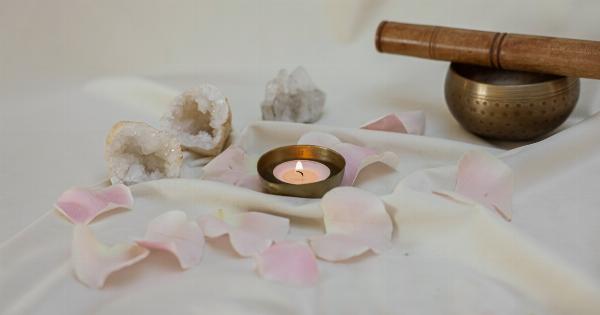Inner peace is a goal that many people strive to achieve in their lives. It is a state of tranquility, where one feels a sense of harmony and calmness amidst the chaos of the world.
While there are various paths to finding inner peace, contentment stands out as an instinctive route towards this coveted state of being. In this article, we will explore the concept of contentment and how it can lead us on the journey to inner peace.
Understanding Contentment
Contentment can be defined as a state of being satisfied and at ease with what one has, without a constant desire for more. It is the ability to appreciate and find fulfillment in the present moment rather than constantly seeking something else.
Contentment does not imply complacency or settling for less; instead, it is about accepting and valuing what is already present in our lives.
At its core, contentment is an internal state of mind. It is not dependent on external circumstances or material possessions.
While it is natural to desire progress and growth, contentment reminds us to find happiness and peace within ourselves, rather than attaching it to external achievements or possessions.
Contentment vs. Happiness
Contentment is often misunderstood as synonymous with happiness. While happiness is a transient emotion, contentment is a more enduring state of being.
Happiness is usually a reaction to a specific event or circumstance, whereas contentment is a deeper sense of satisfaction and peace that is not easily shaken.
In today’s fast-paced and materialistic world, the pursuit of happiness often becomes an endless chase.
We often find ourselves thinking, “If only I had more money,” or “If only I achieved this goal, I would be happy.” This cycle of constantly seeking external sources of happiness leads to dissatisfaction and a perpetual sense of longing.
Contentment, on the other hand, allows us to find joy and fulfillment in the present moment. It frees us from the constant need for more and teaches us to appreciate what we already have.
True contentment is not dependent on external circumstances but is cultivated from within.
The Power of Gratitude
Gratitude is one of the key ingredients in the recipe for contentment. When we cultivate an attitude of gratitude, we shift our focus from what is lacking to what is already abundant in our lives.
It allows us to recognize and appreciate the small blessings that we often overlook.
Practicing gratitude opens our eyes to the beauty and goodness that surrounds us. It helps us develop a positive mindset and fosters contentment by reminding us of all the things we should be thankful for.
When we are grateful, we naturally experience a sense of peace and fulfillment.
The Role of Acceptance
Acceptance is another crucial aspect of contentment. It involves acknowledging and embracing our present reality, whether it is pleasant or challenging.
When we resist or try to change what is out of our control, we create inner turmoil and rob ourselves of peace.
Acceptance does not mean resignation or passivity; it is about acknowledging the reality of the situation and making peace with it. By accepting our circumstances, we release the emotional burden and open ourselves up to finding inner peace.
Letting Go of Comparison
In today’s era of social media and constant connectivity, comparison has become a prevalent trap that hinders contentment.
The tendency to compare our lives, achievements, and possessions with those of others can lead to feelings of inadequacy and discontent.
Contentment requires us to let go of the urge to compare ourselves to others. Each person’s journey is unique, and what brings one person happiness may not necessarily bring the same fulfillment to another.
By focusing on our own path and celebrating our own successes, we can cultivate contentment and find inner peace.
The Practice of Mindfulness
Mindfulness is the practice of being fully present in the current moment. It involves paying attention to our thoughts, feelings, and sensations without judgment.
Mindfulness allows us to cultivate awareness and bring our attention back to the present whenever our minds wander.
By practicing mindfulness, we become more attuned to our inner experiences and better equipped to handle the challenges and stressors that life throws at us.
It helps us detach from worries about the past or the future and find contentment in the present moment.
The Simplicity of Less
In a world that constantly bombards us with messages to accumulate more and more, simplicity often gets overlooked. However, simplicity is a powerful path to contentment.
By simplifying our lives and letting go of excess, we create space for contentment to flourish.
Living a simpler life involves decluttering our physical environment as well as our mental and emotional space.
Letting go of material possessions that no longer serve us frees us from the burden of attachment and paves the way for contentment to fill the void. Embracing a minimalist mindset can lead to a sense of liberation and inner peace.
Connection and Relationships
Human connection and meaningful relationships play a significant role in our pursuit of contentment. Genuine connections with others nurture our sense of belonging and fulfillment.
When we engage in authentic and caring relationships, we create opportunities for love, support, and understanding to flow into our lives.
Building and maintaining healthy relationships require effort, empathy, and vulnerability, but they are a worthwhile investment in our pursuit of contentment.
Meaningful connections remind us of our shared humanity and inspire us to live a life filled with compassion, love, and inner peace.
Embracing Imperfection
Perfectionism is an obstacle to contentment. The unattainable pursuit of perfection often leads to chronic dissatisfaction and self-criticism.
Embracing imperfection, on the other hand, allows us to accept ourselves and others as flawed beings on a continuous journey of growth.
When we release the expectation of perfection, we open ourselves up to self-compassion and self-acceptance. We recognize that mistakes and failures are natural and essential parts of the human experience.
Embracing imperfection frees us from the prison of self-judgment and enables us to find contentment in our own skin.
Cultivating Contentment
Contentment is not a destination but a lifelong practice. It requires a conscious effort to shift our mindset and embrace the present moment.
While our instinctive nature tends to yearn for more, contentment invites us to pause, reflect, and find fulfillment in what already exists.
Cultivating contentment involves daily practices such as gratitude, acceptance, mindfulness, and simplification. It requires us to let go of comparison, embrace imperfection, and nurture meaningful connections.
By actively engaging in these practices, we can embark on a path towards inner peace.
The Rewards of Contentment
When we choose contentment as our instinctive route to inner peace, we unlock a treasure trove of rewards. Contentment allows us to experience joy and fulfillment in the present moment, without being dependent on external circumstances or achievements.
It liberates us from the never-ending pursuit of happiness and offers a sense of peace that surpasses temporary emotions.
Contentment enables us to live more authentically, with gratitude, and a deeper appreciation for life’s blessings. It empowers us to focus on what truly matters and cultivate a positive mindset.
Ultimately, contentment leads us to a state of inner peace that radiates outwards, positively impacting our relationships, well-being, and overall quality of life.





























